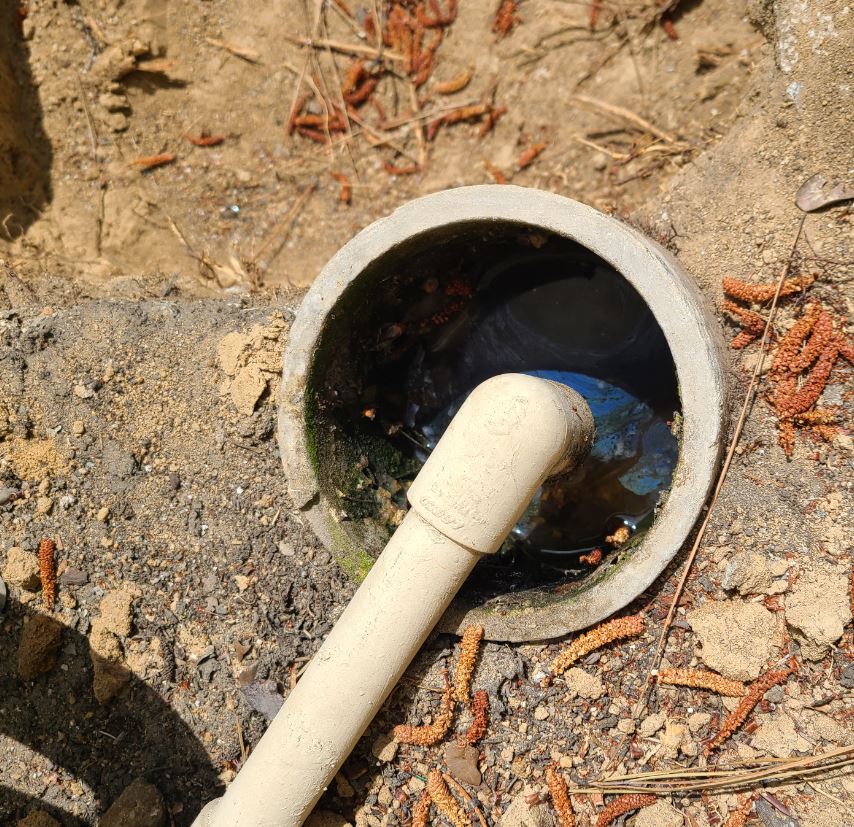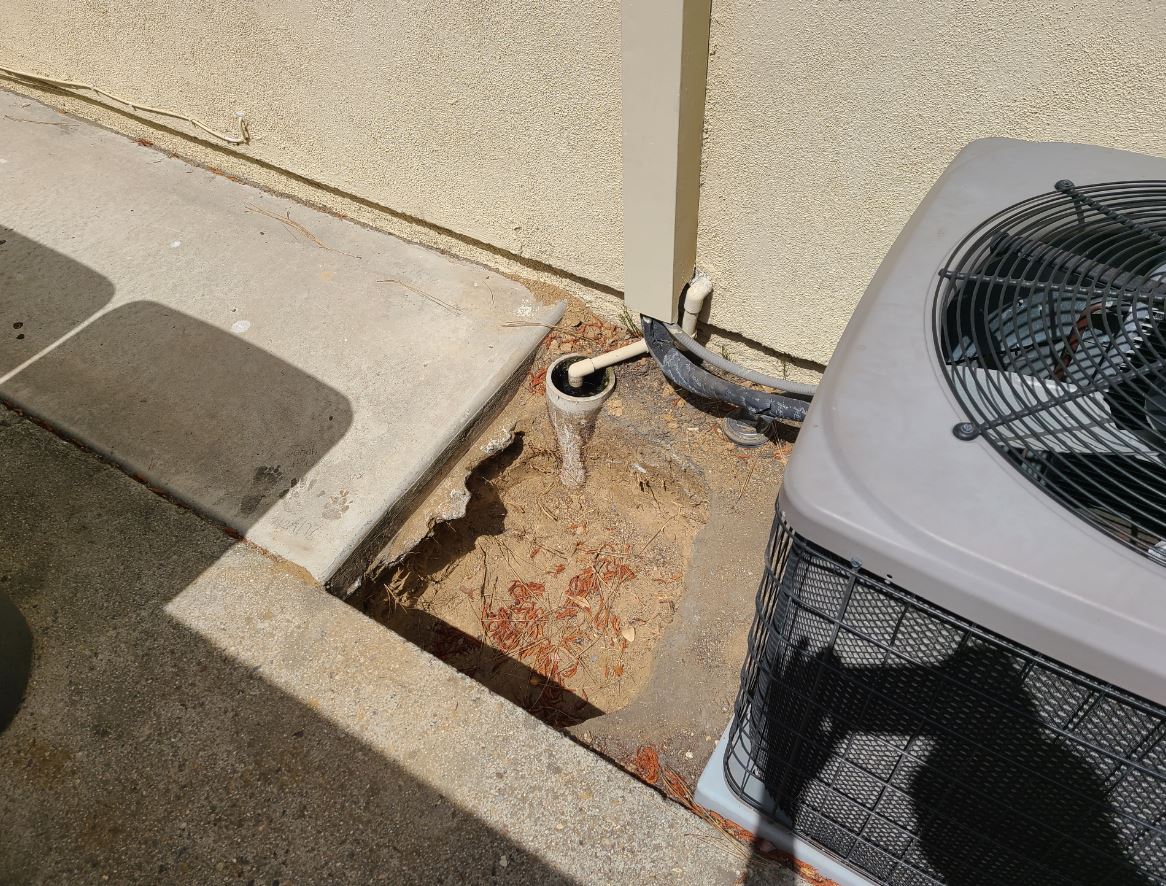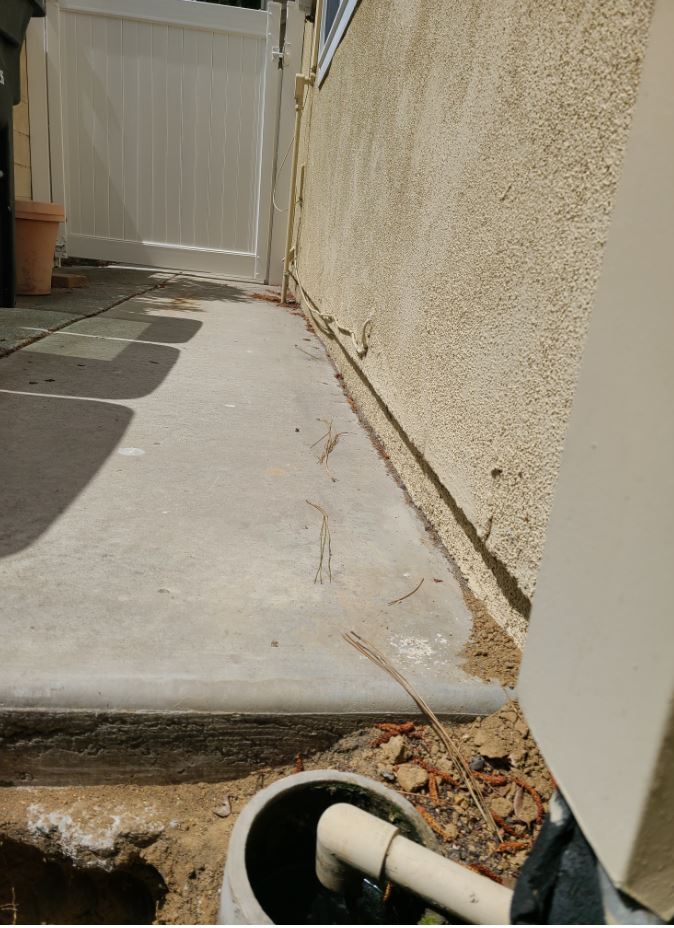I have a central air system with a condensate drain line that exits my home near the actual AC compressor on the side of my house. The original installers put in a cement cylinder that the line drains into, but its never been very effective at draining the water consistently (likely due to hard clay soils). This has become a stagnant water/mosquito concern and I am evaluating other options. Unfortunately I do not have a good outlet to re-route the line to - if I simply have it drain to surrounding walkways, the slope is likely to have the water draining up against the house. Likewise, I don't have any immediate planters to re-route it to without crossing walkways with pipes.
The last weekend I started digging out a larger surface in the drainage area thinking that perhaps I can re-route the drain line slightly and out of the existing cement cylinder to better facilitate drainage, having it drain into a larger surface area to improve saturation and drainage into existing soils.
I am at a bit of a loss if this is a good idea, however, and if there are any guides on how I should go about implementing this change. I believe from researching I would effectively be building out a dry well of sorts, but would like any recommendations to ensure that I can improve drainage to existing soils without posing issues later on during rainy season (I am in Southern California, so heavy rain is not very common). I would really appreciate any recommendations or guidance before I "dig myself too deep" into a hole!
Some pictures of my existing arrangement, hole I dug, and relative area around the drain line for reference.
 General Drainage Area
General Drainage Area

